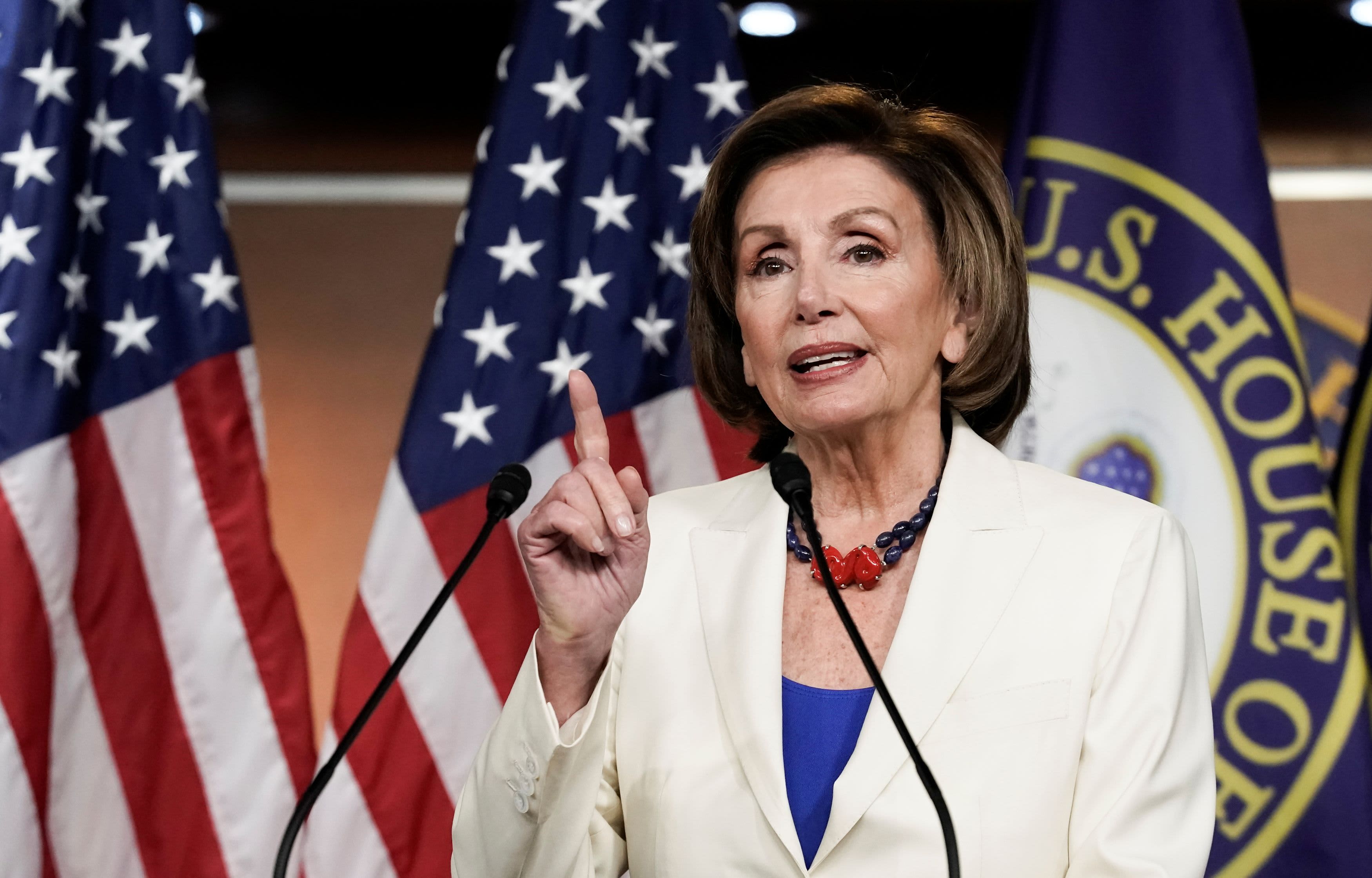Nancy Pelosi (D-CA), the Speaker of the United States House of Representatives, attends her weekly press conference with Capitol Hill reporters in Washington, D.C. on May 20, 2021. Reuters/Ken Cedeno On Tuesday, a bipartisan group of Democratic and Republican House members approved the bipartisan infrastructure plan crafted by senators and the White House, but their support might complicate the bill’s route to passage. In a statement, the 58-member Problem Solvers Caucus said it “strongly endorses” the Senate approach. House Democrats have room to lose support from wary progressives while still passing the nearly $1.2 trillion infrastructure proposal if the group’s 29 GOP members vote for it. However, the group hinted that it would try to sabotage House Speaker Nancy Pelosi’s intention to enact the bipartisan plan alongside a second Democratic proposal to fund child care, education, and climate change activities. The Problem Solvers Caucus called for a “quick, stand-alone vote in the House” on the bipartisan framework in a statement. Pelosi has stated that she will not vote on either the compromise infrastructure measure or the Democrats’ plan until both have passed the Senate. The hazardous method was devised by Democratic leaders in an attempt to ensure that both moderate and liberal members of their party support both ideas. President Joe Biden’s backing for tying the bills together jeopardized the bipartisan agreement until he reversed course, assuring GOP senators who supported the infrastructure proposal. The Problem Solvers Caucus’ 29 Democratic members did not specifically threaten to vote negative on either package if the House does not vote on them separately. The group’s statement, however, highlights the difficulties that Democratic leaders have in passing both the bipartisan proposal and their broader aims through Congress in the coming weeks. A representative for California Democrat Nancy Pelosi did not immediately reply to a request for comment on the Problem Solvers Caucus’ position. After returning to Washington next week, the Senate intends to pass both bills first. Senate Majority Leader Chuck Schumer, D-N.Y., has stated that votes on the bipartisan framework and a budget resolution will begin soon, allowing Democrats to pass a second package without the backing of Republicans. $579 billion in new expenditure is included in the $1.2 trillion infrastructure package. It would spend almost $300 billion on transportation and $250 billion on power, telecommunications, and water infrastructure. Despite the fact that at least 21 senators and the White House have signed on to the idea, it has yet to be translated into legislation. A number of leftist senators have threatened to vote against the bipartisan bill. They argue the proposal, among other things, does not invest enough in combating climate change or promoting the adoption of electric vehicles. Party leaders intended to keep progressives on board with both bills by coupling the more modest proposal with a bigger bill replete with Democratic ideals. White House press secretary Jen Psaki said on Tuesday that the administration plans to engage with lawmakers in the coming week while conversations and bill development take place “behind the scenes.” She also expects Biden to use the reconciliation bill to press for goals that were not included in the bipartisan plan, such as climate tax credits and affordable housing legislation. CNBC has a YouTube channel./n
Read MoreBipartisan House group’s endorsement of Senate infrastructure plan could trip up Pelosi’s strategy
2021-07-06T15:34:28-04:00July 6th, 2021|





